Diaspora Contribution Beyond Remittances
Driving Africa’s Development Agenda
India as the world knows, has risen up to be a leading producer of vaccines today and the secret of their success is through their Diaspora, Indian nationals who brought back their skills, knowledge, finances and discretion to take risks in diverse industries like technology, sciences, industrial and chemical, making India a global economic power.
India is known to have Mega and well-equipped hospitals, making the country a destination for global health care, this was also achieved with the government simply providing incentives to Indian physicians in the Diaspora to invest back in India, with fiscal incentives including tax free status, repatriation of profits, relaxation of foreign exchange restrictions, provision of land to build capital projects and in return, give tax incentives to compensate investors.
The Africa Migration Report 2020 estimates that 75 percent of financial remittances received in Africa is used for consumption, including subsistence and housing. The remaining 25 percent is used for socioeconomic production, for which about 10 percent covers long-term goals, such as education and health. In comparison, approximately 15 percent is used for savings and investing in housing, small assets, and other income-generating activities.
The dividends of African Diaspora contribution to the development of the continent should go beyond personal remittance. Diaspora can play a critical role in promoting trade and investment, facilitating bilateral trade and investment between host and origin countries, utilising accessibility to market knowledge, to enhance home country exporters’ knowledge on import policies of goods destination, and meeting market standards. For some biased reasons, and in some cases, reasonable grounds, our agricultural export products are classified as sub-standard in the international market. We can partner with diaspora subject matter experts to produce new crop varieties, especially for food security within the continent, and become self-sufficient by 2050, when the population of the continent will be getting close to 2.5 billion, almost double of where we are today.
With the right policies put in place, and home country business partners displaying astute values, honesty and accountability, diaspora can invest more in their home country, promoting business development, job creation, innovation and business networks. Some African countries are already creating an enabling business environment to attract foreign investment through diaspora. Ethiopia has offered same benefits and right given to domestic investors to the diaspora counterparts, duty exemption on imported goods, and discounted airfares to diaspora development promoters and entrepreneurs. Nigeria has established a diaspora commission to cater for the needs of the country’s diaspora. Other countries such as Ghana, Gambia, Morocco and Senegal all have different incentives given to Diaspora investors, different from what is given to Foreign Direct Investments.
Diasporas have been identified as a resource for research, innovation, knowledge and technology sharing, and with nothing to be done in the nearest future to mitigate the effect of brain drain, then Africa may as well look to its Diaspora for knowledge sharing, and reverse the brain drain.
The new African Continental Free Trade Area (AfCFTA), is another lofty project that the diaspora can help with; AfCFTA is a free trade area encompassing most of Africa, established in 2018 by the African Continental Free Trade Agreement. It is the largest free trade area by number of member states after the world bank, and has its secretariat located in Ghana.
AfCFTA aims at a single market creation for economic trade, distribution of goods and services across the continent, leading to larger trade and investment flows between African countries. Under the agreement, members are committed to eliminate tariffs on most goods and services over 5, 10 or 13 years, depending on the country’s level of development or nature of the products. The agreement will provide jobs and acquisition of new skills for youths among numerous benefits, promote industrialization and diversify exports.
The success of the agreement will depend on sophisticated supply chain system, logistics operations, frictionless travel and real time data management systems, which is impetus to the success of any operation or system for that matter. Once again, diasporas with international expertise will come handy to make this happen.
Africa’s progress towards attaining its Sustainable Development Goals (SDGs) is partly reliant on collaboration with its diaspora. By creating a business-friendly climate, provide incentives and security, develop policies and legal frameworks to protect investments, and ensuring repatriation of funds is not an arduous or near impossible process, will spur a growth in diaspora investments; let’s not forget that the flow of funds in form of remittances and micro investments is already a significant part of the economy of the continent. Therefore, creating an enabling environment will only build trust and boost diaspora confidence to invest in their home countries. It will accelerate the eradication of poverty through business development and job creation. The SDGs goals of No poverty, Zero Hunger, Quality Education, Decent Work and Economic Growth, Industry Innovation and infrastructure, can and will all be achieved through diasporas contributing to brain circulation, research, innovation, knowledge and technology sharing.







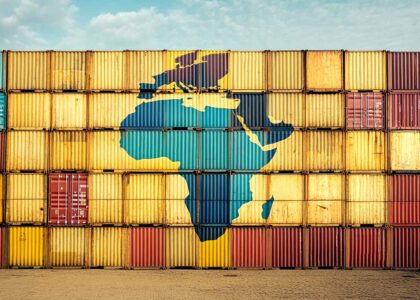



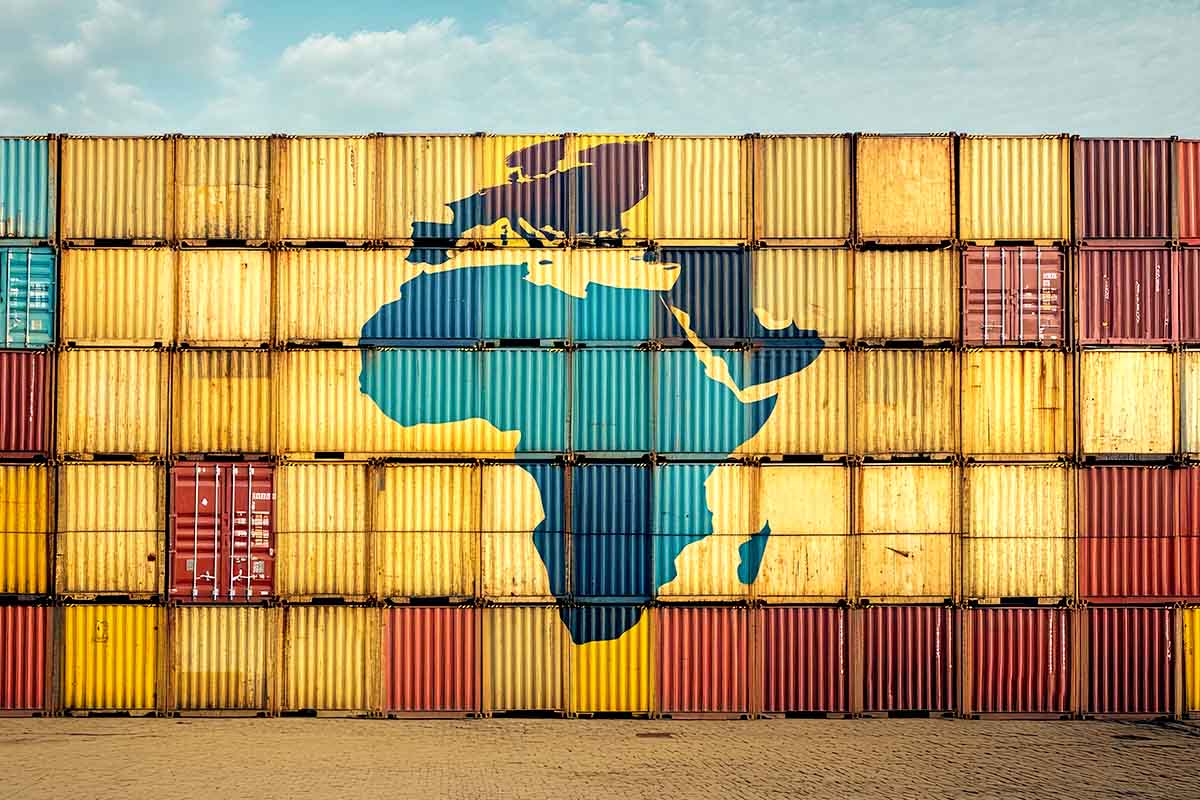


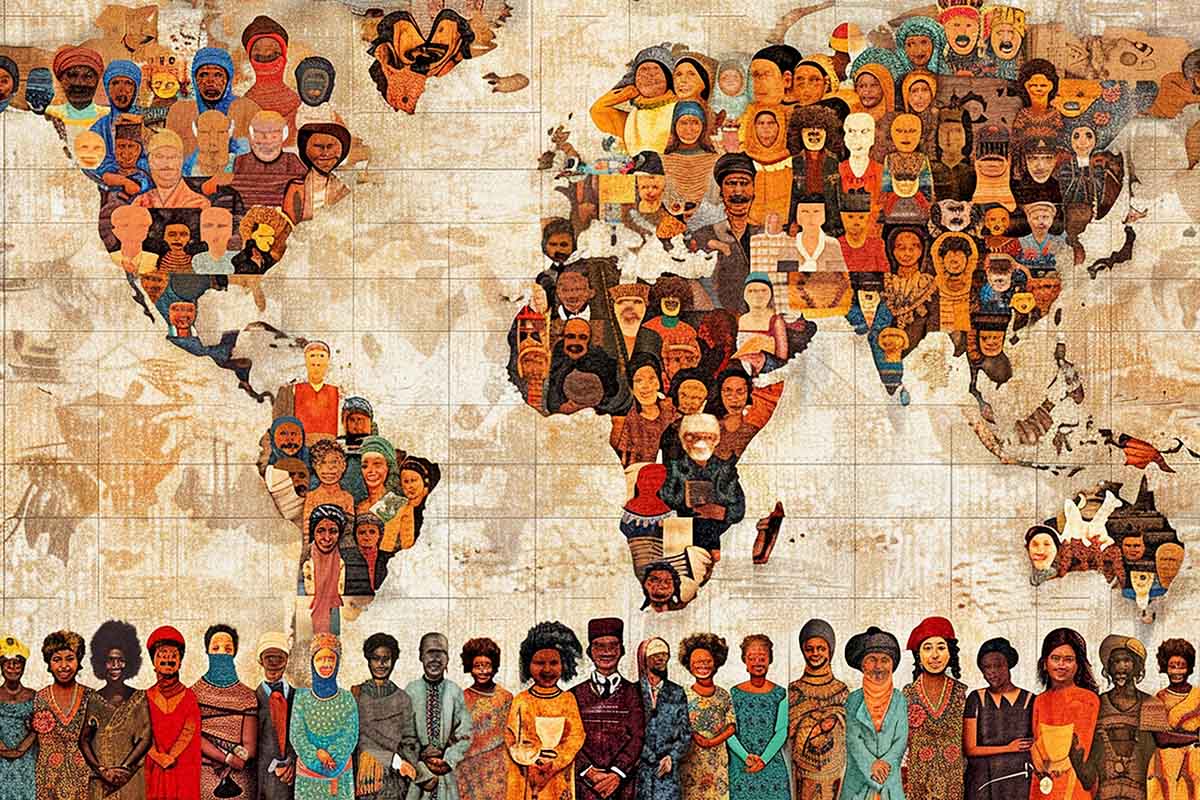

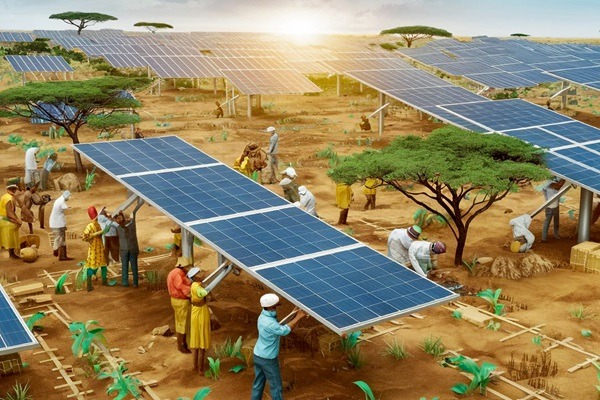


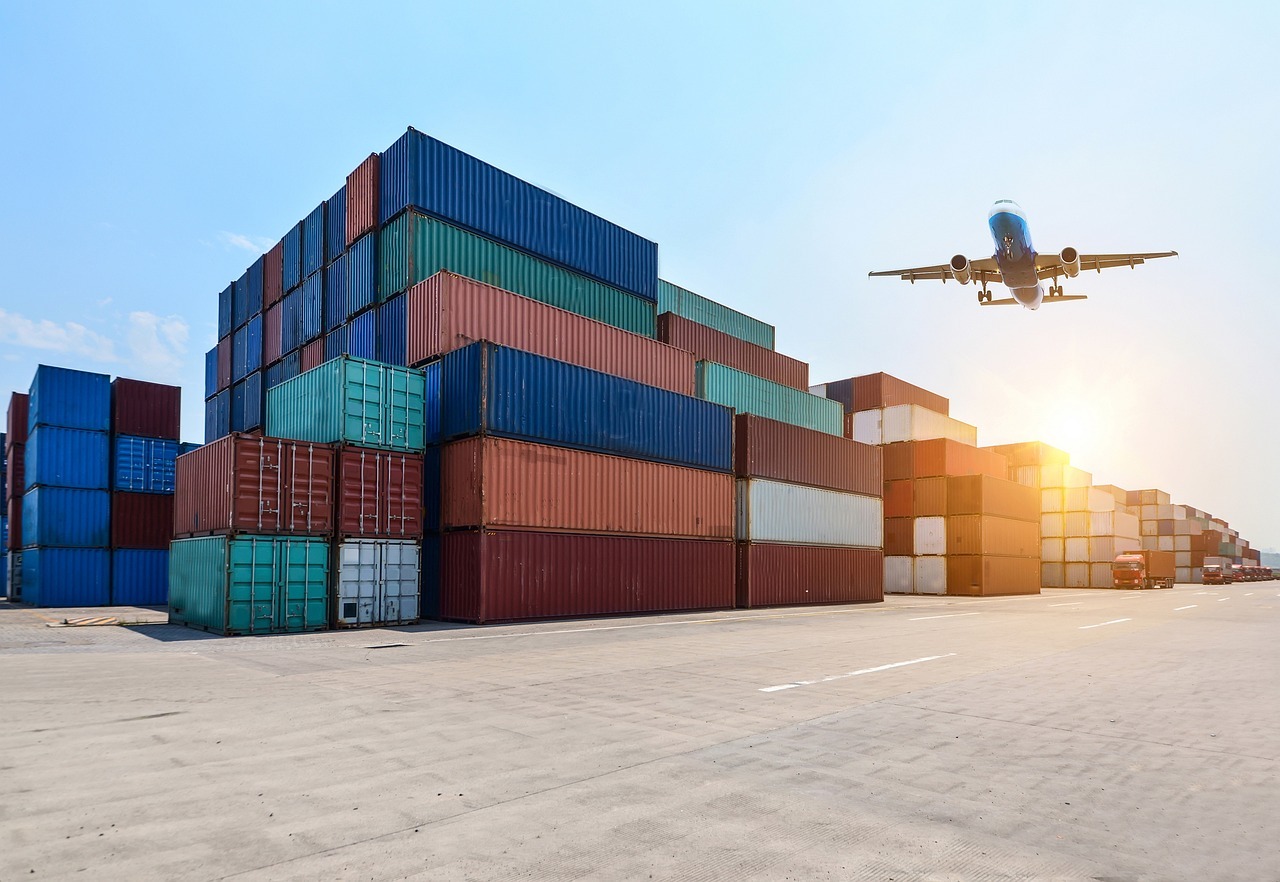
A Comprehensive Guide
Affordable and Reliable: The Best Solar Generators for Home Backup
home backup solar generator https://olargener-ackup.com/ .
Предлагаем оборудовать их лавочками, столиками, велосипедными стойками, заборчиками и, конечно, мусорными урнами.Подбирайте модель, которая впишется в интерьер и не займет много места.
Купить уличные тренажеры
Продам гимнастический комплекс для детейот магазина Sporthappy.com.ua
Детские спортивные площадки
ОБОРУДОВАНИЕ ДЛЯ АКТИВНОГО ОТДЫХА И СПОРТА.Мы уверены, что игровые комплексы должны нравится в первую очередь детям, ну а потом уже дизайнерам и архитекторам.
вано-Франковск, Ужгород, Черкассы, Золотоноша, Смела, Умань, Кировоград, Александрия, Светловодск, Николаев, Вознесенск, Первомайск, Одесса, Херсон, Запорожье, Мелитополь, Бердянск, Полтава, Кременчуг, Комсомольск, Лубны, Миргород, Решетиловка, Хорол, Луганск, Алчевск, Антрацит, Красный Луч, Лисичанск, Свердловск, Северодонецк, а также другие города и поселки.Новости Кременчугское предприятие гормолокозавод компании Данон профинансировало установку детской игровой площадки в г.
Лучшие детские площадки купить
Купить уличные тренажеры по низким ценам
Многофункциональные тренажеры бубновского
Производители игровых и спортивных площадок.А во время школьных каникул и при хорошей погоде это количество увеличивается.
Сравнение больших 3D принтеров
большой 3д принтер для больших фигур купить https://lastyu-bigpech.ru .
Точность и качество гарантированы
Эксклюзивные металлические изделия с помощью 3D печати на заказ в Москве
3D печать металлом на заказ в Москве http://www.3d-pechtmet.ru .
Everything You Need to Know
How to Choose the Best Solar Generator for Your RV
solar panel generator for rv https://ghkolp-56dert.ru .
Must-Have Solar Generator for RV Owners
best solar generator for rv https://www.argener-rv4.ru .
3D принтер по металлу: сравнение цен и функционала
3d принтер для металла цена met3f-int43.ru .
Make the Right Choice for Your Outdoor Adventures
Top Solar Panels for Camping Trips
folding solar panels for camping http://www.stport-solarpanels.ru .
Сравнение характеристик slm принтеров перед покупкой
3д принтер slm http://www.ptrlmms-3d.ru .
Лучшие 3D принтеры с двумя экструдерами
3d принтер с 2 экструдерами ekstrd-2.ru .
Подробный обзор и особенности
3. Как улучшить качество печати на slm принтере
3d принтер slm https://mls-3dprin4.ru/ .
plumbing companies in san jose plumbing companies in san jose .
Изучите основы работы с shining 3D,
Исследуйте перспективы применения shining 3D,
Сравнение методов 3D сканирования: shining 3D vs другие технологии,
Какими особенностями обладает 3D моделирование с shining 3D?,
Инновационные решения в области 3D сканирования от shining 3D,
Как начать работу с программой shining 3D,
Создание 3D моделей с помощью shining 3D,
Секреты получения высококачественных 3D данных с помощью shining 3D,
Руководство по настройке и калибровке shining 3D,
Как сделать качественный дизайн с помощью shining 3D?,
Практическое применение 3D моделей от shining 3D в различных проектах,
Выбор между shining 3D и другими программами для 3D моделирования,
Лучшие функции программы shining 3D,
Обучение 3D моделированию с shining 3D: где начать?,
Освоение продвинутых приемов 3D сканирования с помощью shining 3D,
Технологии 3D сканирования: shining 3D в центре внимания,
Уроки по созданию высококачественных 3D моделей с использованием shining 3D,
Примеры успешного применения shining 3D в различных отраслях,
Какие ошибки делают новички в работе с технологией shining 3D?
shining 3d сканер купить https://www.3sh-eincan.ru/ .
anycubic kobra 2 neo: лучший выбор для профессионалов
anycubic kobra 2 neo http://ycuic-obraeo.ru/ .
Выразите себя с помощью Picaso Designer Classic – купить.
picaso designer classic купить https://paso-signssic.ru .
Необычайный 3D принтер Picaso Designer X S2 для ваших проектов, для самых требовательных пользователей.
Современный дизайн и инновационные технологии в 3D принтере Picaso Designer X S2, который изменит ваш взгляд на создание моделей.
Доступное и качественное решение для дизайнеров: 3D принтер Picaso Designer X S2, которое подарит вам новые возможности и перспективы.
Мощный инструмент для прототипирования и дизайна: 3D принтер Picaso Designer X S2, который станет вашим незаменимым помощником в работе.
Инновационный 3D принтер Picaso Designer X S2 для создания качественных моделей, который поразит вас своей эффективностью и надежностью.
Создавайте удивительные прототипы с помощью 3D принтера Picaso Designer X S2, который отличается высоким качеством печати и точностью деталей.
Продвинутое оборудование для моделирования: 3D принтер Picaso Designer X S2, который поможет вам воплотить ваши идеи в жизнь.
Инновационное оборудование для прототипирования: 3D принтер Picaso Designer X S2, которое подарит вам новый уровень ваших проектов.
Создавайте собственные шедевры с помощью 3D принтера Picaso Designer X S2, которое обеспечит вас всем необходимым для воплощения идей.
Удивительные возможности для создания моделей с 3D принтером Picaso Designer X S2, который не оставит вас равнодушными.
Оптимальное решение для моделирования: 3D принтер Picaso Designer X S2, который поможет вам реализовать любые проекты.
Инновационное оборудование для дизайнеров: 3D принтер Picaso Designer X S2, которое подарит вам новый взгляд на создание моделей.
Лучшее оборудование для моделирования: 3D принтер Picaso Designer X S2, который поможет вам воплотить свои идеи в реальность.
Невероятные возможности для создания моделей с 3D принтером Picaso Designer X S2, который превзойдет ваши ожидания.
Революционный 3D принтер Picaso Designer X S2 для ваших проектов, которое станет вашим верным помощником в работе.
Современное оборудование для моделирования и дизайна: 3D принтер Picaso Designer X S2, который поможет вам воплотить ваши идеи в жизнь.
Продуктивное решение для дизайнеров: 3D принтер Picaso Designer X S2
picaso designer x s2 aso-design2.ru .
Уникальный 3D сканер Revopoint: оценка возможностей, как выбрать лучший 3D сканер, как улучшить процесс сканирования с помощью 3D сканера Revopoint, использование 3D сканера Revopoint в различных отраслях, уникальные возможности 3D сканера Revopoint Tanso S1, новые возможности для дизайнеров благодаря 3D сканеру от Revopoint, расширенные функции 3D сканера Revopoint для профессионального использования, популярные модели 3D сканеров от Revopoint, как быстро овладеть навыками работы с 3D сканером Revopoint, как использовать 3D сканер в архитектурном проектировании, как выбрать подходящий 3D сканер для медицинских целей, какие идеи можно воплотить с помощью 3D сканера от Revopoint, советы по оптимизации строительных процессов с помощью 3D сканера от Revopoint, 3D сканер Revopoint для промышленности: особенности применения, новые возможности для хобби и творчества с 3D сканером от Revopoint, почему 3D сканер от Revopoint – лучший выбор для быстрого сканирования, как использовать 3D сканер для создания виртуальных миросред, как улучшить детализацию моделей с помощью 3D сканера Revopoint.
revopoint 3d http://vop-rewoint4.ru/ .
Woww that was strange. I jjst wrote aan very long
comment but after I clicked submit my comment didn’t appear.
Grrrr… well I’m not writing all that over
again. Anyhow, just wanted to say fantastic blog!
My webpage :: https://sambhaltimesnews.com/experienced-in-the-area-for-all-english-more/
Выбор магазина для приобретения SLS принтера, что учитывать при покупке SLS принтера.
ТОП-5 самых популярных моделей SLS принтеров, достоинства онлайн-покупки SLS принтеров.
Где можно безопасно приобрести SLS принтеры?, цены на SLS принтеры: где дешевле?.
Как не ошибиться с выбором SLS принтера?, только надежные SLS принтеры в продаже.
Где купить качественный SLS принтер со скидкой?, как выбрать SLS принтер для своих нужд?.
3d принтер sls купить https://slsdd-printer32.ru/ .
Топ магазинов, где можно приобрести промышленный 3D принтер | Что учитывать при покупке промышленного 3D принтера | Какой промышленный 3D принтер выбрать | Продажа промышленных 3D принтеров | Специальные предложения на промышленные 3D принтеры | Какие бренды промышленных 3D принтеров пользуются популярностью | Какие возможности предоставляют промышленные 3D принтеры | Совместимость материалов с промышленным 3D принтером | За и против приобретения промышленного 3D принтера
купить промышленный 3d принтер https://www.promddd-printer2.ru/ .
Лучшие предложения на 3D принтеры для ювелирного производства, 3D печать для ювелирных изделий, Новейшие технологии 3D печати для ювелирных мастерских, 3D принтер для ювелира: лучшие модели и цены, Идеальный ювелирный 3D принтер: только лучшие модели, Только у нас вы найдете качественные 3D принтеры для ювелирного дела, Ювелирные 3D принтеры с бесплатной доставкой, Лучшие цены на ювелирные 3D принтеры, Где заказать 3D принтер для ювелирных изделий с гарантией, Скидки на 3D принтеры для производства украшений, Только у нас: лучшие 3D принтеры для ювелиров, 3D принтеры для ювелиров: акции и спецпредложения, Персональный 3D принтер для производства ювелирных украшений, Технологии 3D печати для ювелиров: только проверенные модели, Инновационные 3D принтеры для создания украшений, Где купить высококачественный 3D принтер для ювелиров, 3D принтер для создания украшений: где купить выгодно.
3д принтер ювелирный цена 3д принтер ювелирный цена .
3д принтеры российского производства – идеальный выбор для вас, на всю линейку.
Купить 3д принтер отечественного производства с доставкой по России, за кратчайшие сроки.
Только высококачественные 3д принтеры отечественного производителя, проверено временем.
Заказывайте 3д принтеры производства России без переплат, самые выгодные условия.
Почему стоит купить 3д принтер российского производства?, о которых вы не знали.
Сертифицированные 3д принтеры отечественного производства, покупайте с уверенностью.
Мы предлагаем только проверенные 3д принтеры российского производства, для вашего успеха.
Инновационные 3д принтеры от российских производителей, в нашем магазине.
Экономьте на доставке и выбирайте 3д принтеры внутреннего производства, для вашего успеха.
принтеры российского производства купить https://rsu-dd3print.ru .
Где купить лазерный 3D сканер по выгодной цене?, сравнение моделей.
Где можно приобрести качественный лазерный 3D сканер?, оптимальные цены.
Где найти дешевые лазерные 3D сканеры?, скидки и акции.
Новинки рынка – лазерные 3D сканеры, специалисты рекомендуют.
Лазерный 3D сканер – ваш помощник в работе, сравнение цен.
лазерный 3d сканер купить http://www.lazernyjddd-skaner3.ru .
Инновационные возможности промышленного 3D сканера, подробное руководство по использованию.
Сравнение различных моделей промышленных 3D сканеров, плюсы и минусы.
Как увеличить эффективность производства с помощью 3D сканирования, лучшие практики.
Основы кибербезопасности для пользователей промышленных 3D сканеров, способы обеспечения конфиденциальности.
Технологические инновации в области 3D сканирования, возможности оптимизации.
3d сканер промышленный купить цена promyshlennyj3d-skaner6.ru .
для вашего комфорта,
для вашего бизнеса,
RangeVision Pro: новейшие разработки в области 3D-сканирования,
Улучшите результаты с помощью RangeVision Pro,
RangeVision Pro: надежность в каждой детали,
RangeVision Pro: ваш надежный помощник в работе,
RangeVision Pro: идеальное сочетание цены и качества,
RangeVision Pro: инструмент современного профессионала,
RangeVision Pro: инновации для профессиональных задач,
Выберите RangeVision Pro и ощутите разницу.
сканер rangevision pro https://www.range-vision56pro.ru/ .
Почему стоматологические 3D-принтеры – это будущее стоматологии|Возможности стоматологических 3D-принтеров: новейшие технологии для вашей улыбки|Как выбрать подходящий стоматологический 3D-принтер|Какие материалы используются для печати стоматологических конструкций|Стоматология нового поколения: преимущества 3D-принтеров|Инновационные решения для стоматологических клиник с помощью 3D-принтеров|3D-принтеры в стоматологии: современные возможности и перспективы|Инновации в стоматологии: перспективы применения 3D-печати|Какие преимущества получают врачи и пациенты благодаря использованию 3D-принтеров|Новые методы изготовления протезов и конструкций в стоматологии благодаря 3D-принтерам|Новые методы применения стоматологических 3D-принтеров в медицине|Значимость использования 3D-принтеров в стоматологии|Что такое биопечать и как она меняет стоматологию|Новые возможности для стоматологии: как принципы 3D-печати меняют отрасль|Какие новые методы лечения появились благодаря стоматологическим 3D-принтерам|3D-принтеры в стоматологии: современные возможности и перспективы
3d принтеры стоматологические http://stomatologicheskie34-printery.ru/ .
с устройством Einscan H2 | Einscan H2: что нужно знать перед покупкой | Секреты правильной калибровки Einscan H2 | Einscan H2: новые возможности и перспективы | Лучшие программы для совместной работы с Einscan H2 | Современные технологии 3D-печати и Einscan H2 | Подробное руководство по созданию моделей с Einscan H2 | Как выбрать оптимальные настройки для Einscan H2 | Моделирование с Einscan H2: советы от экспертов | Einscan H2: сравнение с конкурентами на рынке | Оптимизация процесса сканирования с Einscan H2 | Применение Einscan H2 в работе с 3D-принтерами | Профессиональный подход к подготовке моделей для печати с Einscan H2 | Как сделать 3D-моделирование быстрым и эффективным с Einscan H2
einscan h2 https://nscan3d-h2.ru .
Лучший выбор – 3D-сканер RangeVision Smart, получите детальную информацию.
RangeVision Spectrum – новинка в мире 3D-сканеров, примите обоснованное решение.
Почему стоит выбрать 3D-сканер RangeVision PRO, забронируйте демонстрацию.
Сравнение моделей 3D-сканеров RangeVision, исходя из ваших целей.
Погрузитесь в мир современных технологий с RangeVision, выберите подходящий продукт.
rangevision https://ngevision-rt3.ru .
Your article helped me a lot, is there any more related content? Thanks!
Your article helped me a lot, is there any more related content? Thanks!
Can you be more specific about the content of your article? After reading it, I still have some doubts. Hope you can help me.
I don’t think the title of your article matches the content lol. Just kidding, mainly because I had some doubts after reading the article.
I don’t think the title of your article matches the content lol. Just kidding, mainly because I had some doubts after reading the article.
I don’t think the title of your article matches the content lol. Just kidding, mainly because I had some doubts after reading the article.
Удивительные разработки компании Shining 3D, для успешной реализации ваших идей.
Как 3D-сканирование от Shining 3D меняет медицинскую практику.
3D-принтеры нового поколения от Shining 3D.
Технологии будущего уже здесь – Shining 3D.
Официальный дистрибьютер Shining 3D в России: гарантия качества.
Shining 3D и перспективы применения 3D-сканирования.
Взгляд в будущее: 3D-печать от Shining 3D.
3D-технологии для творческих проектов от Shining 3D.
3D-сканирование и 3D-печать: новые возможности с Shining 3D.
Shining 3D: технологии будущего уже здесь.
einscan https://www.6hinin-tr.ru/ .
Оптимизация производства через использование 3D-сканеров
3д принтер промышленный https://myshlennye-3d-ska4.ru/ .
Инновационные решения: лазерные 3D сканеры в медицине
лазерный 3д сканер http://lazernyert4.ru/ .
Какие функции важны при выборе профессионального 3D сканера
3d сканер профессиональный https://profes-3d-skan.ru/ .
Почему стоит выбрать ручные 3D сканеры?
3d сканер ручной https://chnye-3d-skan.ru/ .
Your article helped me a lot, is there any more related content? Thanks!
Thanks for sharing. I read many of your blog posts, cool, your blog is very good.
Can you be more specific about the content of your article? After reading it, I still have some doubts. Hope you can help me. https://accounts.binance.com/en/register-person?ref=JHQQKNKN
Can you be more specific about the content of your article? After reading it, I still have some doubts. Hope you can help me.
Thank you for your sharing. I am worried that I lack creative ideas. It is your article that makes me full of hope. Thank you. But, I have a question, can you help me?
Thanks for sharing. I read many of your blog posts, cool, your blog is very good.
Your point of view caught my eye and was very interesting. Thanks. I have a question for you. https://accounts.binance.com/id/register-person?ref=GJY4VW8W
Your point of view caught my eye and was very interesting. Thanks. I have a question for you.
I don’t think the title of your article matches the content lol. Just kidding, mainly because I had some doubts after reading the article.
Can you be more specific about the content of your article? After reading it, I still have some doubts. Hope you can help me.
Can you be more specific about the content of your article? After reading it, I still have some doubts. Hope you can help me. https://accounts.binance.com/bn/register?ref=UM6SMJM3
I don’t think the title of your article matches the content lol. Just kidding, mainly because I had some doubts after reading the article. https://www.binance.com/sv/join?ref=PORL8W0Z
Thank you for your sharing. I am worried that I lack creative ideas. It is your article that makes me full of hope. Thank you. But, I have a question, can you help me? https://www.binance.com/el/register?ref=IQY5TET4
Thanks for sharing. I read many of your blog posts, cool, your blog is very good.
I don’t think the title of your article matches the content lol. Just kidding, mainly because I had some doubts after reading the article.
I don’t think the title of your article matches the content lol. Just kidding, mainly because I had some doubts after reading the article.
Can you be more specific about the content of your article? After reading it, I still have some doubts. Hope you can help me.
Thank you for your sharing. I am worried that I lack creative ideas. It is your article that makes me full of hope. Thank you. But, I have a question, can you help me?
Thank you for your sharing. I am worried that I lack creative ideas. It is your article that makes me full of hope. Thank you. But, I have a question, can you help me?
Thank you for your sharing. I am worried that I lack creative ideas. It is your article that makes me full of hope. Thank you. But, I have a question, can you help me?
Thanks for sharing. I read many of your blog posts, cool, your blog is very good.
I don’t think the title of your article matches the content lol. Just kidding, mainly because I had some doubts after reading the article.
I don’t think the title of your article matches the content lol. Just kidding, mainly because I had some doubts after reading the article.
I don’t think the title of your article matches the content lol. Just kidding, mainly because I had some doubts after reading the article.
Your point of view caught my eye and was very interesting. Thanks. I have a question for you.
Can you be more specific about the content of your article? After reading it, I still have some doubts. Hope you can help me.
Your point of view caught my eye and was very interesting. Thanks. I have a question for you.
Your point of view caught my eye and was very interesting. Thanks. I have a question for you.
Your article helped me a lot, is there any more related content? Thanks!
Can you be more specific about the content of your article? After reading it, I still have some doubts. Hope you can help me.
Thank you for your sharing. I am worried that I lack creative ideas. It is your article that makes me full of hope. Thank you. But, I have a question, can you help me?
Find the perfect online school in Oklahoma, with our comprehensive guide.
Discover the advantages of virtual education in Oklahoma.
Start your search for the perfect online school in Oklahoma.
Read reviews from students at online schools in Oklahoma.
Online Schools in Oklahoma https://www.onlineschoolok8.com .
p8qcwu
Best Online Schools in Kentucky, Discover Your Future, Top-Rated Accredited Online Schools in Kentucky, Start Your Journey Today, Pros and Cons of Online Education in Kentucky, Making the Right Choice, Best Online High Schools in Kentucky, Earn Your Diploma, Best Online Elementary Schools in Kentucky, Unlock Your Child’s Potential, A Closer Look at the Process
Online Schools in Kentucky https://www.onlineschoolky1.com .
Explore the best online schools in Wisconsin, with detailed rankings and reviews.
Enroll in a reputable online school in Wisconsin, and start your educational journey today.
Learn from the comfort of your own home in Wisconsin, with flexible schedules and personalized support.
Boost your job opportunities with an online diploma in Wisconsin, from accredited online schools in Wisconsin.
Realize your educational aspirations with an online program in Wisconsin, customized to match your preferences and availability.
Connect with fellow students in virtual classrooms in Wisconsin, and establish a supportive community for your journey.
Access resources and materials online for your courses in Wisconsin, to thrive in your virtual learning and prosper in your digital school.
Online Schools in Wisconsin http://onlineschoolwi6.com/ .
Thank you for your sharing. I am worried that I lack creative ideas. It is your article that makes me full of hope. Thank you. But, I have a question, can you help me?
Find the best online schools in Missouri, providing flexible learning options.
Start your online education journey in Missouri, that offers personalized support.
Interested in pursuing online education in Missouri?, Explore our carefully curated selection.
Achieve your academic goals from the comfort of your home in Missouri, with cutting-edge technology.
How can online schools in Missouri enhance your learning experience?, Discover the advantages today.
Join a supportive online community in Missouri, to share ideas and insights.
Access the digital library of online educational institutions in Missouri, to broaden your intellectual horizons.
Online Schools in Missouri http://onlineschoolmo6.com/ .
Find Your Perfect Match: Online Schools in New Mexico, Take Your Education to the Next Level with Online Schools in New Mexico, Achieve Your Academic Goals with Online Schools in New Mexico, Unlock Your Potential with Online Schools in New Mexico, Get Ahead with Online Schools in New Mexico, Join the Online Learning Community in New Mexico, Choose Your Path to Success with Online Schools in New Mexico, Discover the Benefits of Online Schools in New Mexico, Explore Online Learning Opportunities in New Mexico, Discover the Advantages of Online Schools in New Mexico
Online Schools in New Mexico Online Schools in New Mexico .
Thank you for your sharing. I am worried that I lack creative ideas. It is your article that makes me full of hope. Thank you. But, I have a question, can you help me?
Explore the best online schools in Utah, from the comfort of your home.
Become a part of a recognized online school in Utah, to kickstart your academic career.
Earn your diploma remotely in Utah, with convenient classes and top-notch professors.
Connect with other students in online schools in Utah, for a collaborative learning experience.
Participate in hands-on activities in online schools in Utah, to make learning fun and engaging.
Receive assistance and mentorship in online schools in Utah, to help you excel in your studies.
Pick the perfect major in online schools in Utah, that align with your passions and aspirations.
Advance your education through online schools in Utah, towards a prosperous and fulfilling future.
Online Schools in Utah http://onlineschoolut6.com/ .
Find the best online schools in Illinois, browse through the list of online schools.
Achieve your educational goals with an online program in Illinois.
Flexible schedules and convenient online classes.
Start your online education journey today.
Online schools offering a wide range of programs.
Recognized online institutions in Illinois.
Cost-effective online programs in Illinois.
Successful online graduates in Illinois.
Advance your career with an online degree in Illinois.
Connect with like-minded individuals in online programs in Illinois.
Online Schools in Illinois https://onlineschoolil20.com .
Get your degree from a reputable online school in Louisiana
Online Schools in Louisiana https://www.onlineschoolla8.com .
Thank you for your sharing. I am worried that I lack creative ideas. It is your article that makes me full of hope. Thank you. But, I have a question, can you help me?
Best Online Schools for Colorado Residents, Find Your Perfect Online Program in Colorado, Start Your Online Education Journey in Colorado, Find the Right Online Program for You, Get Your Degree from an Online School in Colorado.
Online Schools in Colorado Online Schools in Colorado .
Thank you for your sharing. I am worried that I lack creative ideas. It is your article that makes me full of hope. Thank you. But, I have a question, can you help me?
I don’t think the title of your article matches the content lol. Just kidding, mainly because I had some doubts after reading the article.
Top Online Schools in Kentucky, Explore the Options, Achieve Your Goals, Explore Your Options, Comparison of Online vs Traditional Schools in Kentucky, Cost-Effective Online Schools in Kentucky, Invest in Your Future, Prepare for College, Excel in Your Studies, Build a Strong Foundation, Behind the Scenes of Online Schools
Online Schools in Kentucky http://onlineschoolky1.com .
Thank you for your sharing. I am worried that I lack creative ideas. It is your article that makes me full of hope. Thank you. But, I have a question, can you help me?
Find Your Perfect Match: Online Schools in New Mexico, Enroll in a Virtual Classroom Today!, Achieve Your Academic Goals with Online Schools in New Mexico, Unlock Your Potential with Online Schools in New Mexico, Maximize Your Learning Potential with Online Schools in New Mexico, Embrace the Future of Education with Online Schools in New Mexico, Start Your Online Education Journey in New Mexico, Discover the Benefits of Online Schools in New Mexico, Transform Your Education with Online Schools in New Mexico, Discover the Advantages of Online Schools in New Mexico
Online Schools in New Mexico https://www.onlineschoolnm3.com .
Your point of view caught my eye and was very interesting. Thanks. I have a question for you.
Can you be more specific about the content of your article? After reading it, I still have some doubts. Hope you can help me.
Discover the top online schools in Illinois, check out the rankings and reviews.
Achieve your educational goals with an online program in Illinois.
Tailored curriculum and interactive learning platform.
Take the first step towards your online degree.
Online degrees in various fields of study.
Recognized online institutions in Illinois.
Budget-friendly online degrees in Illinois.
Successful online graduates in Illinois.
Advance your career with an online degree in Illinois.
Join the thousands of students enrolled in online schools in Illinois.
Online Schools in Illinois Online Schools in Illinois .
Thanks for sharing. I read many of your blog posts, cool, your blog is very good.
Discover the top online schools in Minnesota | Earn your degree from home with online schools in Minnesota | Top-rated online schools in Minnesota for your convenience | Find the perfect online school in Minnesota | Embark on your online learning experience in Minnesota | Experience the perks of online schools in Minnesota | Register for accredited online programs in Minnesota | Convenient options for online education in Minnesota | Customize your education with online schools in Minnesota | Match your goals with online schools in Minnesota
Online Schools in Minnesota onlineschoolmn4.com .
Discover the top online schools in Idaho, from the comfort of your home.
Get your degree from the best online schools in Idaho, and open up new opportunities.
Flexible schedules offered by online schools in Idaho, to fit your busy life.
Build a strong support system with online schools in Idaho, to enhance your learning experience.
Experience the advantages of online schools in Idaho, and excel in your studies.
Online Schools in Idaho http://www.onlineschoolid6.com .
Discover the top online schools in South Carolina, Achieve your educational goals with online learning in South Carolina.
Flexible options for online education in South Carolina.
Convenient online education options in South Carolina.
Advantages of choosing online education in South Carolina.
Achieve your goals with online schools in South Carolina.
Choose from a variety of online programs in South Carolina.
Experience the convenience of online learning in South Carolina.
Flexible options for working professionals in South Carolina.
Elevate your career with online education in South Carolina.
Reach your goals with the help of online programs in South Carolina.
Online Schools in South Carolina http://onlineschoolsc6.com/ .
Your point of view caught my eye and was very interesting. Thanks. I have a question for you.
Best Online Schools in Idaho, Advantages of Online Education in Idaho, Learn at Your Own Pace, Make an Informed Decision Today, Trusted Online Institutions in Idaho, Quality Education from Accredited Schools, Maximize Your Job Opportunities with a Degree, Get Help Paying for Your Education, Specialized Online Schools in Idaho, Excel in Your Field with Specialized Training, Achieve Your Goals with Convenient Courses
Online Schools in Idaho http://www.onlineschoolid6.com/ .
Discover the Best Online Schools in Oregon | Adapt Your Schedule with Online Schools in Oregon | Achieve Success with Online Schools in Oregon | Enhance Your Knowledge with Online Schools in Oregon | Build Your Future with Online Schools in Oregon
Online Schools in Oregon http://www.onlineschoolor6.com/ .
Explore the best online schools in Tennessee, on this website.
Interested in online schools in Tennessee?, Browse through these top picks.
Research the top online schools in Tennessee, using our detailed list.
Ready to enroll in online schools in Tennessee?, Find all the information you need on this site.
Find everything you need to know about online schools in Tennessee, all in one place.
Get the inside scoop on online schools in Tennessee, by exploring our site.
Want to find reputable online schools in Tennessee?, You’ve come to the right place.
Make the smart choice with online schools in Tennessee, based on our in-depth research.
Find the perfect fit with online schools in Tennessee, on our site.
Begin your education with online schools in Tennessee, by exploring our site.
Online Schools in Tennessee http://onlineschooltn1.com .
Online Schools in Hawaii http://onlineschoolhi6.com/ .